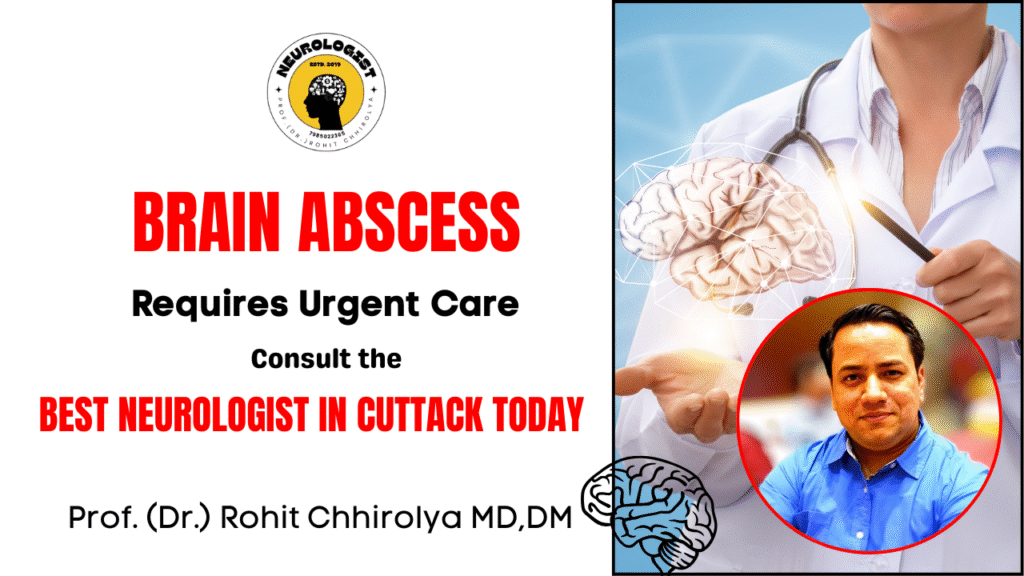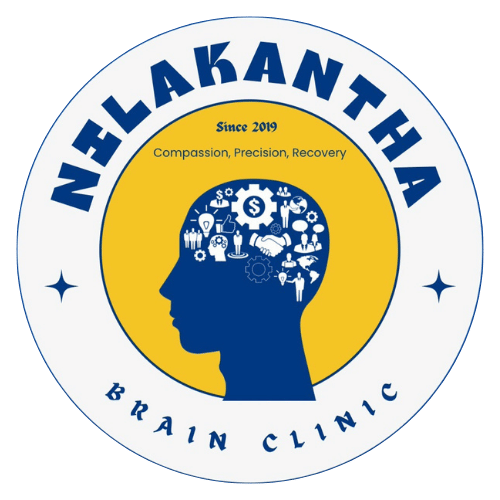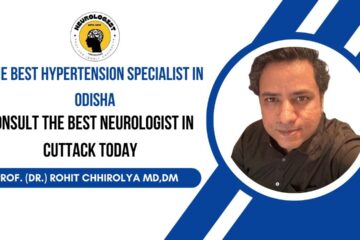
A brain abscess—a life-threatening pocket of pus in the brain—demands emergency neurological care. With mortality rates up to 30% even with treatment, early intervention by the top neurologist in Cuttack is critical. In Odisha, where infections like TB and sinusitis are common triggers, timely action saves lives. This guide covers symptoms, treatments, and why Nilakantha Brain Clinic is Cuttack’s trusted hub for brain abscess care.
What is a Brain Abscess?
A brain abscess is a localized infection causing pus buildup within brain tissue. It typically develops when bacteria/fungi spread from nearby sites (ears, sinuses) or through the bloodstream.
Critical Facts:
- India reports 8% of global brain abscess cases.
- Delayed treatment causes permanent disability in 50% of survivors.
- Peak incidence: Ages 20–40.
Symptoms: Recognize the Red Flags
Early Stage (1–2 weeks):
- Persistent headache (90% of cases)
- Low-grade fever
- Nausea/vomiting
Neurological Stage (2–4 weeks):
- Seizures (focal or generalized)
- Speech difficulties
- Weakness on one side
Critical Stage:
- High fever (104°F+)
- Altered consciousness
- Coma
Urgent Action: Visit a neuro doctor near me if headache + fever persists >48 hours.
Causes & Risk Factors
1. Common Pathways
- Direct Spread: Sinus/ear infections (35% of cases).
- Bloodstream: Lung/heart infections.
- Trauma: Post-surgical or skull fractures.
2. High-Risk Groups
- Immunocompromised: HIV, diabetes, chemotherapy.
- Congenital Heart Disease: Allows blood-borne infections.
Diagnosis: Advanced Techniques in Cuttack
The best neurologist doctor in Cuttack uses:
- MRI Brain:
- Ring-enhancing lesion with edema (classic sign).
- CT Scan:
- Initial screening for abscess location.
- Blood/Culture Tests:
- Identify bacteria (Staph, Strep) or fungi.
Why Choose Nilakantha?
Dr. Rohit Chhirolya, a top neurologist in Cuttack, offers 24/7 MRI and CT services for same-day diagnosis.
Treatment Protocols
1. Antibiotics/Antifungals (IV)
- First-Line: Ceftriaxone + Metronidazole (6–8 weeks).
- Fungal Abscess: Amphotericin B.
2. Surgical Drainage
- Stereotactic Aspiration: Minimally invasive pus removal.
- Craniotomy: For large/multi-loculated abscesses.
3. Post-Op Care
- Seizure Management: Levetiracetam.
- Rehab: Physical/speech therapy.
Recovery Timeline:
- Hospitalization: 4–6 weeks.
- Full recovery: 3–12 months.
Expert Insight: Dr. Chhirolya, the best neurology specialist in Cuttack, notes: “Surgery within 24 hours of diagnosis reduces complications by 40%.”
Complications & Prevention
Long-Term Risks:
- Epilepsy (30% of survivors)
- Cognitive deficits
- Motor weakness
Prevention Strategies:
- Treat ear/sinus infections early.
- Manage diabetes/heart conditions.
- Avoid unsterile head procedures.
Why Consult a Neurologist in Cuttack?
Brain abscesses mimic tumors, strokes, or encephalitis. A best neurologist near me ensures:
1) Accurate diagnosis (MRI + cultures).
2) Minimally invasive surgery.
3) Neuro-rehab for deficits.
Finding the Best Neurologist in Cuttack
Key Selection Criteria
- Emergency Neurosurgery Access: For drainage.
- ICU Collaboration: For critical care.
- Rehab Integration: Physical/speech therapy.
Cuttack Neurology Doctor List
- Dr. Rohit Chhirolya, DM (Neurology)
- Clinic: Nilakantha Brain Clinic
- Expertise: Brain abscess management, neuro-infections.
- Contact: 📞 7985022365 | 🌐 Emergency Care
FAQs
Q1: Can dental infections cause brain abscesses?
A: Yes! Untreated dental abscesses spread to the brain. See a neuro doctor in Cuttack immediately.
Q2: Is a brain abscess fatal?
A: Mortality is 10–30%. Early treatment by the best neurologist in Cuttack improves survival.
Q3: How much does surgery cost in Cuttack?
A: ₹2–5 lakhs. Nilakantha offers EMI options.
Q4: How to find a “cuttack neurology doctor list”?
A: Search online or visit Nilakantha Brain Clinic.
Q5: Can seizures recur post-recovery?
A: Yes. 30% develop epilepsy. Lifelong medication may be needed.
Q6: Why choose a neurologist over a neurosurgeon?
A: Neurologists lead diagnosis/medical management; neurosurgeons operate. Both collaborate at Nilakantha.
Q7: What are the most urgent warning signs of a brain abscess?
A: Seek immediate medical attention for:
Severe, worsening headache (often localized) + fever.
Sudden onset of seizures.
New neurological deficits (weakness, numbness, vision changes, speech difficulty).
Significant changes in mental state (confusion, lethargy, coma).
Nausea/vomiting with headache and fever.
Q8: How is a brain abscess definitively diagnosed?
A:Neuroimaging is essential:
MRI with contrast: Gold standard. Shows the abscess clearly (ring-enhancing lesion) and surrounding inflammation/edema. Advanced sequences (DWI/ADC) help distinguish it from tumors.
CT scan with contrast: Often the first test in emergencies. Shows a ring-enhancing lesion, but less detail than MRI. Useful if MRI isn’t available or for initial screening.
Definitive diagnosis usually requires aspiration or biopsy to identify the causative organism(s).
Q9: Can a brain abscess be treated with antibiotics alone, without surgery?
A: Sometimes, yes, but it’s less common. Criteria include:
Small abscess size (usually < 2-3 cm).
Abscess located in deep or critical brain areas where surgery is high-risk.
Early cerebritis stage (before pus has fully formed).
Causative organism identified and known to be highly antibiotic-sensitive.
Close monitoring with frequent imaging is crucial. Surgery (aspiration or excision) is often needed for larger or complex abscesses.
Q10: How long is the treatment for a brain abscess?
A: Treatment is prolonged:
IV Antibiotics: Typically 4-8 weeks, sometimes longer. Depends on organism, response, and surgical management.
Surgery: May shorten antibiotic duration if complete drainage/excision is achieved.
Oral Antibiotics: Often continued for several weeks after IV therapy.
Steroids: Used short-term (days to weeks) to reduce swelling if causing significant mass effect or neurological compromise.
Anticonvulsants: Usually continued for months or longer if seizures occurred.
Q11: What causes brain abscesses in children?
A: Common sources differ slightly from adults:
Congenital Heart Disease (especially cyanotic): Major risk factor due to abnormal blood flow bypassing the lungs’ filter.
Ear/Sinus Infections: Otitis media, mastoiditis, sinusitis are frequent sources.
Meningitis: Complications can lead to abscess.
Head Trauma/Surgery: Penetrating injuries or neurosurgery.
Immunodeficiency: Less common than adults, but still a factor.
Q12: Can a brain abscess come back (recur)?
A: Yes, recurrence is possible, though less common with modern treatment. Risk factors include:
Incomplete surgical drainage/excision.
Inadequate antibiotic therapy (duration, choice, penetration).
Failure to eliminate the primary source of infection (e.g., chronic ear/sinus infection, heart defect).
Presence of foreign material (e.g., shrapnel).
Immunocompromised state.
Q13: What are the potential long-term complications after surviving a brain abscess?
A: Even with successful treatment, long-term effects can include:
Neurological Deficits: Weakness, paralysis, sensory loss, speech/language problems (aphasia), vision problems.
Seizures: Often requiring long-term anti-seizure medication.
Cognitive Impairment: Memory problems, difficulty concentrating, personality changes.
Headaches: Persistent or recurrent.
Hydrocephalus: May require a shunt.
Hormonal Imbalances: If the pituitary gland or nearby areas are affected.
Q14: How do fungal brain abscesses differ from bacterial ones?
A: Fungal abscesses (e.g., Aspergillus, Candida, Cryptococcus):
Are more common in severely immunocompromised individuals (e.g., advanced HIV/AIDS, chemotherapy, organ transplant).
Often have different imaging characteristics (less distinct ring enhancement, may be multiple).
Require longer treatment durations with specific antifungal medications (often months to years).
May be harder to diagnose (fungal cultures are slow and less sensitive).
Often carry a worse prognosis than bacterial abscesses.
Q15: Can dental infections cause brain abscesses?
A: Yes. Infections from teeth (especially upper molars) or gums can spread:
Directly: Through bone into the sinuses and then to the brain (frontal lobe).
Hematogenously: Bacteria enter the bloodstream during dental procedures or severe infection and travel to the brain. Good dental hygiene is important prevention!
Q16: What is the recovery process like after treatment?
A: Recovery is gradual and varies:
Hospitalization: Often lengthy initially (weeks).
Rehabilitation: Crucial. May involve physical therapy (PT), occupational therapy (OT), speech therapy (ST), and cognitive therapy for weeks or months.
Outpatient Care: Close follow-up with neurologist, infectious disease specialist, and possibly neurosurgeon. Regular imaging (MRI/CT) to monitor resolution.
Medication Management: Continuing antibiotics/antifungals, anticonvulsants, etc., as prescribed.
Managing Deficits: Long-term support for any persistent neurological or cognitive issues.
Addressing the Source: Treating the original infection (e.g., dental, ear, heart defect).
Don’t Gamble With Brain Infections
Brain abscesses require lightning-fast response. At Nilakantha Brain Clinic, Cuttack’s top neurologist, Dr. Rohit Chhirolya, combines emergency imaging, minimally invasive surgery, and rehab to maximize recovery.
Act Now—Save a Life!
📞 Call 7985022365
🌐 Visit Nilakantha Brain Clinic
Stay Informed:
- Health alerts on Facebook.



